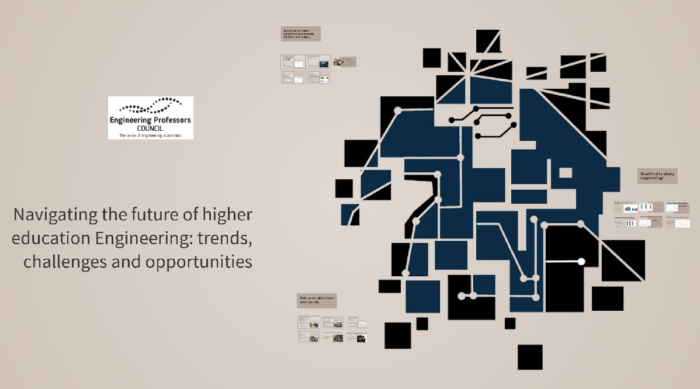The Engineering Professors’ Council-chaired Mathematics Working Group has just published its position statement on Maths and Further Maths A level reform. Do let us have your views…
Mathematics and further mathematics A Level reform
The Engineering Professors’ Council (EPC) is the representative body for engineering in higher education. Its primary purpose is to provide a forum in which engineers working in UK higher education (HE) can exchange ideas about engineering education, research and other matters of common interest and come together to provide an influential voice and authoritative conduit through which engineering departments’ interests can be represented to key audiences.
Mathematics is a subject of enormous importance to the education of engineers in all disciplines. This importance is illustrated by the fact the EPC has for many years maintained a Mathematics Working Group (MWG). In addition to EPC members, the EPC MWG includes representatives from the Association for Science Education (ASE), the Institute of Mathematics and its Applications (IMA), the Institute of Physics (IoP), Mathematics in Education and Industry (MEI), the National STEM Centre, the National Centre for Excellence in the Teaching of Mathematics (NCETM), the Royal Academy of Engineering and awarding bodies. It was a task group of the EPC MWG that played a central role in the successful development of the Mathematics for Engineering Additional & Specialist Learning qualification for the Advanced Engineering Diploma.
As a body with 80 institutional members (from all university mission groups) encompassing ~6,000 (permanent FTE) academic staff in all branches of engineering, the EPC wants to express its willingness to offer advice and help to those charged with reforming A Levels in subjects that help prepare students for HE engineering courses, including, of course, Mathematics and Further Mathematics. The EPC also wants to state briefly its considered view, formulated by its Mathematics Working Group, about the future of these two key subjects at A Level.
- It is important to recognise that the majority of students of A Level Mathematics do not go on to undertake a degree course in mathematics and that other subjects in HE (such as engineering, the natural sciences and economics) are important stakeholders with an interest in the standards and content of A and AS Level Mathematics and Further Mathematics. The Mathematics Working Group of EPC includes representatives from the mathematics, physics and science communities in addition to engineering. Our experience is that there is a very high degree of agreement as to the required content of A and AS Level Mathematics courses across these disciplines.
- We believe that the principal problem with current A Levels lies in the forms of assessment used rather than their subject content. These assessments have been allowed to become too structured and predictable, especially in Mathematics and to some extent Further Mathematics; they no longer test genuine mathematical knowledge, understanding and insight but rather the ability to be led through questions that are very similar to examples previously seen in class.
- While we agree that changes are necessary to A Levels to restore standards, we feel that the modular structure of A Levels has been made something of a scapegoat in the debate on standards. We would advocate the retention for Mathematics and Further Mathematics of a modular structure, in which the results of AS Levels completed the end of Year 12 contribute to the award of A Levels completed in Year 13. We recommend such a structure because we are concerned that, while depth could be assessed at the end of the course, time constraints make it difficult to cover the required breadth in the assessment. For mathematics, a two-stage assessment process has much to commend it. The first stage (usually taken at the end of Year 12) could measure a wide range of mathematical skills. This would free up time at the end of Year 13 for final synoptic assessments that contain in-depth questions requiring problem-solving skills and the ability to apply and combine the mathematical principles learnt over the past two years.
- Given the declared intention to increase the testing of mathematical skills in relevant A Level subjects, it is important that the reforms of subjects such as Chemistry and Physics take into account the reform of Mathematics and Further Mathematics and vice versa. The fact that the reforms of these subjects are progressing on different timelines is a matter of significant concern. In addition to the obvious risks associated with disjointed reform processes, the lack of synchronisation in effect eliminates the opportunity for the discussion of potentially beneficial cross-subject reforms. This is particularly important in the context of mechanics, which features in the specifications of Mathematics/Further Mathematics and Physics A Levels. If these subjects are properly coordinated, there is considerable scope thereby to support and strengthen advantageously the mathematical sophistication of Physics A Level. This opportunity should not be missed.
- Although we do not see any need for significant changes in subject content, we do believe that structural aspects of Mathematics A Level (and Further Mathematics) need reconsideration. One example is the question of how mechanics is taught, as mentioned above. Another is the question of which parts of the specifications should be ‘core’ and which ‘options’. We believe that a greater proportion of Mathematics A Level should be ‘core’ and that the core should include some mechanics, probability theory and statistics in addition to pure mathematics.
- The linkage between applications and options should also be reconsidered. As the considerable majority of those who take Mathematics A Level and progress on to HE do not go on to study mathematics at university, we believe the interests of learners as a whole would be better served if examples of the wide applicability of the mathematics they are learning were encountered throughout their study of the subject. Such examples help motivate students and contribute to understanding.
- The revival in the popularity of AS and A Level Further Mathematics has been a great success story in the last decade. This has been due, in no small part, to the work of the Further Mathematics Support Programme (formerly the Further Mathematics Network) managed by MEI. In particular, the provision of a Further Mathematics AS Level, which can be taken either during Year 12 or Year 13, has been very popular. Further Mathematics AS Level is very well regarded by Admissions Tutors for HE engineering programmes. In consequence, the EPC is concerned that the reforms could have the unintended consequence of reducing the take-up of Further Mathematics, which is often taken as a fourth A Level subject. With the concentration of assessments into a few weeks at the end of the two years, we fear that many students will be advised by their school/college to take no more than three A Levels. This would undoubtedly reduce the take-up of both A Level and AS Level Further Mathematics in Year 13. Our proposal for a two-stage assessment of Mathematics would help to alleviate this problem by reducing examination load at the end of Year 13 of those taking Mathematics A Level.




